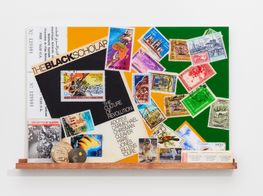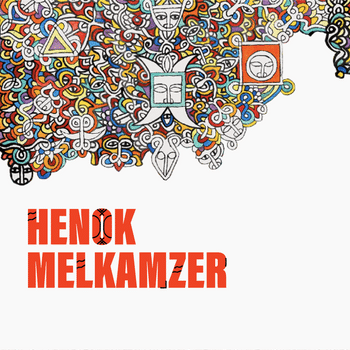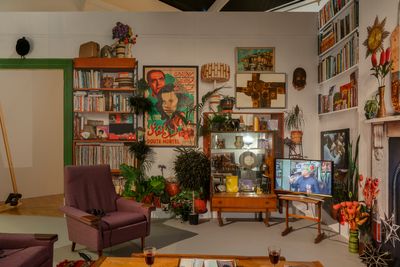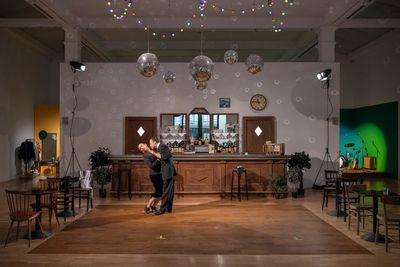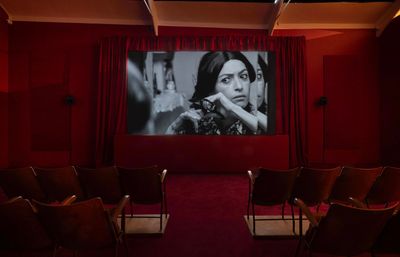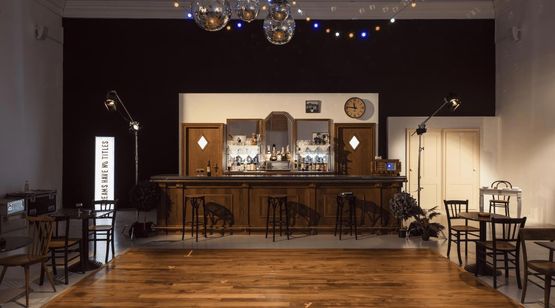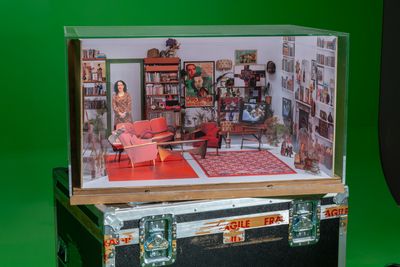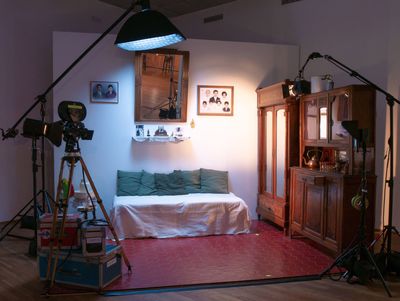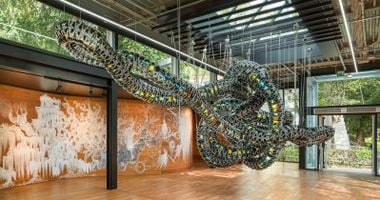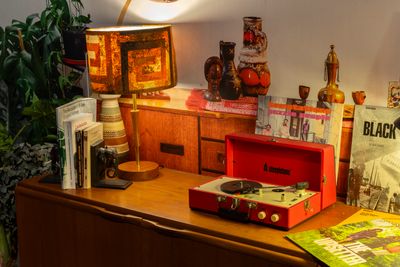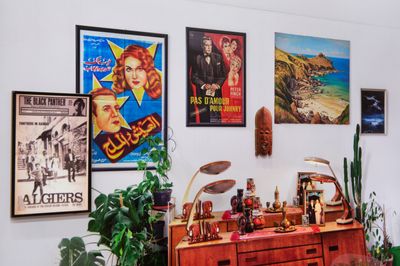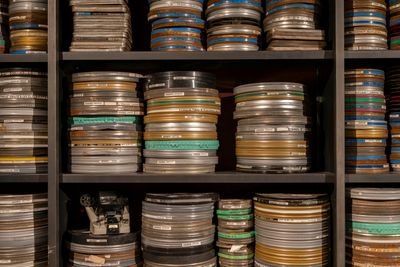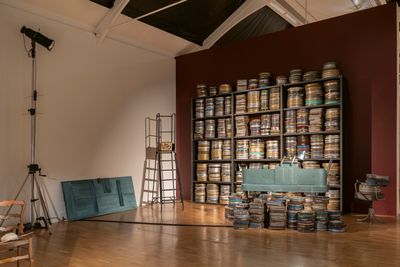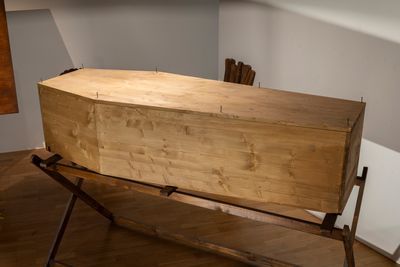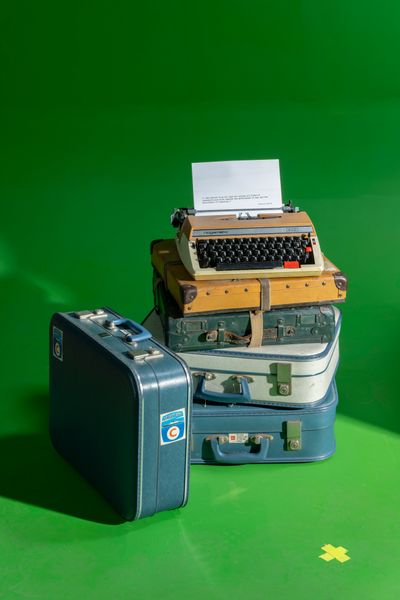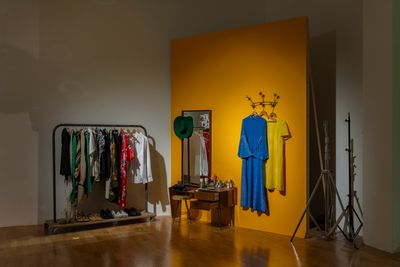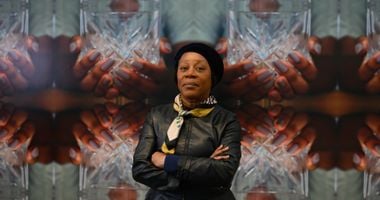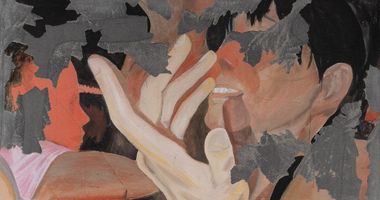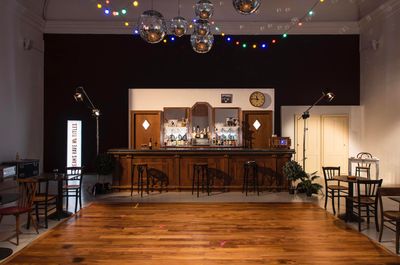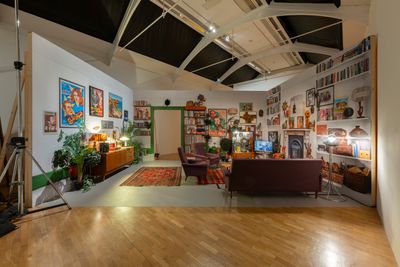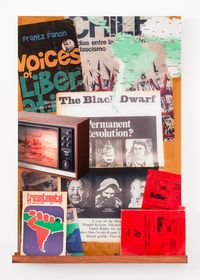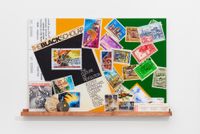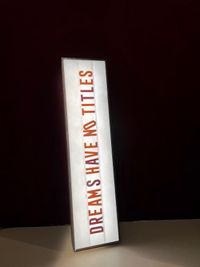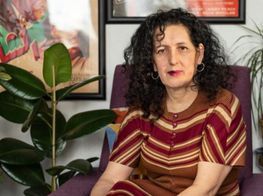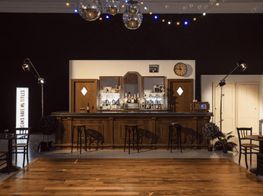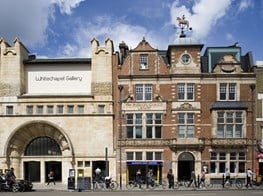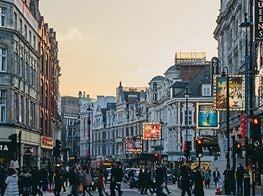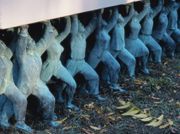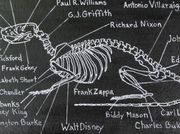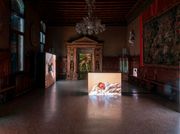Zineb Sedira: ‘Culture is a way of resisting’
Zineb Sedira. © Zineb Sedira.
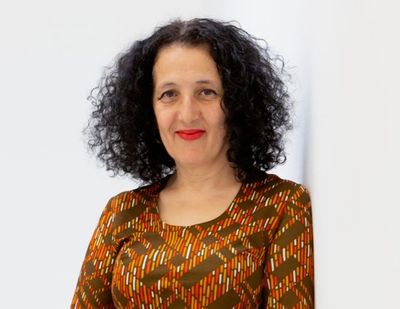
Zineb Sedira. © Zineb Sedira.
In 2022, Zineb Sedira became the first artist of Algerian descent to represent France at the Venice Biennale, with Dreams Have No Titles, an expansive multimedia installation exploring the legacies of Third World cinema.
Dreams Have No Titles is anchored to Gillo Pontecorvo's 1966 film The Battle of Algiers. Created after Algeria achieved independence in 1962, the Italian-Algerian production depicts Algerian fighters engaged in a struggle for freedom.
The film was awarded the Golden Lion at the 1966 Venice International Film Festival—the same year it was banned in France and nominated for an Academy Award for Best Foreign Language Film in the United States. Its reception exemplified the rise of transnational anti-colonialist and anti-imperialist movements in the 1960s and 70s, inspiring the work of radical filmmakers across generations.
Dreams Have No Titles is a celebration of the transnational solidarities that developed through radical cinema in the 1960s and the decades that followed. The installation is designed as a series of interlocking film sets that unfold throughout the exhibition space.
There's the re-creation of the artist's living room in London, and a shelving unit filled with film reels referencing Cinémathèque Algérienne, an important meeting place and repository of anti-colonial, militant cinema founded in Algiers in 1965.
One section is based on the ballroom featured in Le Bal, a 1983 movie by Ettore Scola; periodically, two performers tango in front of the installation's bar. Sedira recreates that dance in a film screened in a cinema room nearby. The space is modelled after the cinema Sedira frequented as a child in Gennevilliers, Paris, as one of nine children to Algerian parents who arrived in France in the early 1960s.
Sedira's film opens with a clip from the 1973 movie, F for Fake, in which Orson Welles utters the line: 'Almost any story is almost certainly some kind of lie—but not this time.' It then cuts to a shot of Sedira's curators for the French Pavilion: Sam Bardaouil, Till Fellrath, and Yasmina Reggad, with whom Sedira founded the aria residency in Algiers in 2011.
At one point, Reggad recreates an important scene from The Battle of Algiers, where a woman cuts her hair before dyeing it to look more European. Such oscillations between reality and representation define Dreams Have No Titles, on view in London for the first time at Whitechapel Gallery (15 February–12 May 2024), before the next iteration is presented at Abu Dhabi Cultural Foundation this October.
In this conversation, Sedira reflects on the history this project illuminates, how the installation has evolved through time and space much like the films it references, and how the project embraces friendship and joy as political propositions.
SBYour work has always extended from your life, from the video Mother, Father and I (2003), when you interview your parents about their role in Algeria's war of independence, to Way of Life (2019), an installation of your living room you showed at the Jeu de Paume, Paris, which feels like a precursor to Dreams Have No Titles. Could you talk about that?
ZSWay of Life was a point of departure for me. I exhibited my living room in Brixton, where I have lived for more than 30 years, with all its vintage objects, furniture, paintings, and film posters from the 1960s that I have collected. I literally emptied my living room and installed it at the Jeu de Paume as part of a larger installation titled Standing Here Wondering Which Way to Go (2019).
That was a very enjoyable project for me. I like the idea of set design, decor, and the boundaries between fiction and reality. As soon as I take something out of my home and put it into an art space, it becomes a wider story—a fiction that mixes the autobiographical with the collective.
So, when it came to Dreams Have No Titles, I wanted to combine my passion for collecting with creating spaces that incorporate elements from France, Algeria, and Britain, which are all part of my identity, alongside items from Italy as the country that also formed part of the project.
SBSince the 2022 Venice Biennale, Dreams Have No Titles has travelled to the Hamburger Bahnhof in Berlin, the Gwangju Biennale as part of the French Pavilion, and now Whitechapel Gallery in London. How has this work evolved through its travels?
ZSThe Hamburger Bahnhof is a larger space, so the installation had a different feel to the show in Venice, but we kept all its elements and components. The Whitechapel show is the same, but has to work on two floors rather than one, so again, the display is unique.
The presentation in Gwangju was modified due to the smaller size of the space. I decided to show the film and only add a re-creation of my studio and living room. I mixed personal vintage objects with new ones, mainly sourced from around Gwangju, such as Korean film posters and books from the sixties and seventies, which helped connect the history of Korean resistance with Japan, which colonised the country.
For the Abu Dhabi Cultural Foundation iteration in October 2024, I will apply a similar approach; I will most probably show again a version of my living room and studio space, including local found objects that tie the space to the histories of imperialism in the Emirates.
SBHow have people in different contexts engaged with the work? Particularly how it unpacks the history of Algeria's war of independence through The Battle of Algiers, which won the Golden Lion in Venice in 1966, the same year it was nominated for an Academy Award and banned in France...
ZSHow The Battle of Algiers or any similar film is read today will be different from how it was understood in the context of the sixties, when the political consciousness around imperialism was highly meaningful as many countries were colonised or had just become independent.
The fact that The Battle of Algiers won the Golden Lion at the Venice Film Festival says to me that prizes can be a political statement. In this case, it tells you about anti-colonial politics and culture in Italy at the time. The French disapproved strongly of the prize—even cinema professionals—as it was seen as an anti-French statement. This reaction tells us there was a denial of the French colonial legacy even amongst people of culture.
The prize created a political and cultural incident between Italy and France, which accused Italy of giving the prize to a terrorist. Yacef Saadi, one of the leaders of the National Liberation Front during the Battle of Algiers, plays himself in the film. He was a freedom fighter but for the French, he was a terrorist!
People, wherever they come from, can draw parallels depending on their experience of colonialism and imperialism whether in the Global North or South. Today, in an era of post-independence, the Algerian fighters who fought against colonialism are heroes. They are seen as people who did what they had to do to gain independence.
SBHow do you hope Dreams Have No Titles is received in London?
ZSIn the context of London and the politics of the moment, I hope this exhibition will show what 'immigrants' and their children can offer to the world! They're not coming to steal jobs, but to participate in and contribute to culture and society.
We can learn and take so much from each other, as the history of militant cinema of the sixties and seventies shows us. Strong solidarities and diversity in culture can only be beneficial! I think I am a product of that.
SBDreams Have No Titles feels like an invitation to enter the world of revolutionary ideas that filmmakers engaged with in the 1960s and 70s through the archive. In one section of the installation, a shelf of film cans references the Cinémathèque Algérienne...
ZSThat space references the importance of cinema archives in Algeria as well as those in Italy and France in which I spent lots of time. These archives are important nuclei to collect, restore, and conserve films. But the space also looks at the destruction, negation, or forgetting of those films intentionally or not.
This was a cinema that was not just about entertainment but also about disseminating information and political engagement, when filmmaking was a tool for political resistance.
Unfortunately, in Algeria, years of neglect have damaged the legacy of its cinema production. This does not mean that today there isn't a desire from the Ministry of Culture to save this legacy—very slowly films have been restored. Of course, Algerian films are a priority, then come other films.
SBThe threat of erasure is something Dreams Have No Titles resists in its engagement with the archive. In fact, you were central to the restoration of Ennio Lorenzini's documentary Les mains libres (1964–1965), the first film made in post-Independence Algeria, which is woven into your film. Could you talk about that?
ZSLes mains libres, the first international film co-production between Algeria and Italy, was financed by Casbah Films, an Algerian film production company. The film had 'disappeared' for more than 57 years; the last time it was screened was in 1965.
I found the 35-millimetre copy of Les mains libres in the Archivio Audiovisivo del Movimento Operaio e Democratico, an important library in Rome with a large film and audiovisual archive composed of the Italian Communist Party's film collection. I contacted the Cineteca di Bologna, which specialises in African cinema and has restored many films from the continent. They were keen to restore the film, especially as the filmmaker is Italian. Now, the film is widely distributed.
Many of the Italian filmmakers in the 1960s who made anti-colonial films were often Italian Communist Party members. So films like The Battle of Algiers or Les mains libres also tell the story of Italy in the sixties, and the country's shift from fascism after World War II.
SBDreams Have No Titles embodies this evolving intersectionality. Just as your installation changes as it moves through time and space, the meaning of these films is as unstable as their survival as physical artefacts that embody a moment in history.
ZSIt's also my personal story. It's about my love for what we call 'Third Cinema' or anti-colonial cinema. Dreams Have No Titles is about not forgetting that these films existed. For me, there is something very rich and important about these films that still needs to be looked at today. They tell us tales of politics, revolution, and solidarity from a moment, when there was this vital political consciousness around questions of anti-colonialism, anti-capitalism, and racism.
This was a cinema that was not just about entertainment but also about disseminating information and political engagement, when filmmaking was a tool for political resistance. Just because some of the political ideas of the time failed or did not survive, doesn't mean they should be ignored or forgotten today. We can and should learn from it!
SBThis call to learn from the past and strive to make things better recalls a quote by Frantz Fanon typed onto a page coming from a typewriter in the installation: '...let's banish from our land all racism, all forms of oppression and work towards the development of man and the enrichment of humanity....'
ZSExactly. Let's not forget that The Battle of Algiers was a collaboration between the Global North and Global South: an Italian-Algerian co-production, a merging of culture, film passions, political, intellectual, and artistic visions, and, of course, friendships.
Behind the making of this film were deep conversations between Saadi, the director of Casbah Films, and Pontecorvo, who visited Algeria many times. The archives of Museo Nazionale del Cinema in Turin confirm the interest Pontecorvo had for the country. I think this is why the film was such a success.
To work with Algeria in the 1960s was a form of activism.
This kind of friendship can be found in co-productions between filmmakers who worked in or with Algeria during that period. Not only did they want to broaden their knowledge of the country's history and culture, but they also expressed their political stance. To work with Algeria in the 1960s was a form of activism.
My project is precisely an homage to this type of cultural or artistic collaboration. For me, the beauty of working in the art world is the meeting between artists and/or art professionals from diverse countries, religions, and cultures. We can learn so much from each other.
SBThis idea of friendship and solidarity comes through in the film you made for Dreams Have No Titles, which features friends and family, including Sonia Boyce and curator Gilane Tawadros.
Boyce, of course, is a central figure in the legacy of political Blackness that emerged in Britain in the 1960s and 70s, both politically and within the British Black Arts movement, as a means to connect Afro-Asian diasporas in the struggle against colonialism and racism. Has this influenced your practice?
ZSI wasn't part of that movement because I arrived in 1986 and became a student in 1991. By that time, its impact had slowed down. Nevertheless, Sonia Boyce happened to be my neighbour in Brixton, which was known for its anti-racist politics. We moved to Villa Road in 1991. Being mothers, coming from the same working-class background, and our experiences of racism cultivated our friendship.
I often think that Fanon, who was so close to the Algerian cause, helped me when it came to being accepted within the post-colonial discourse thriving in the U.K. and U.S. Unlike in France!
When Sonia was nominated for the British Pavilion at the 2022 Venice Biennale, I thought about friends and colleagues who share similar political views in relation to the themes of my Venice project. As Sonia and Gilane were part of the discourse on race and identity politics, I invited them to be part of my film.
I also invited Latifa Echakhch, the Moroccan-French artist who represented Switzerland that year. This was a way of bringing my artistic community together, to talk about 'family' in art and politics. My son is also in the film, and friends from the past who are not artists. These encounters and personal stories go right back to my childhood and everyday life.
It was fortunate how my ideas seemed to fall naturally into place for this project. It just so happened that my father activated my passion for film by taking me to the cinema in the sixties as a child. I was also born in the sixties, and I love this period for its politics, design, fashion, music, and film aesthetics.
I always say Dreams Have No Titles is the most pleasurable art project I have created, because it indulged my passion to research, source, and collect objects and artefacts from that era. Many of the objects and clothes that I collected were used as costumes and props, which added another autobiographical layer to the project.
SBThat pleasure comes through in the film, where solidarity is expressed through the conception of joy as a political force. Is that fair to say?
ZSYes. It's a political joy: joy as a resisting mechanism. One work I made, Laughter in Hell (2014–2018), looks at how laughter and caricatures were used as political weapons to fight or resist the war on terrorism in Algeria in the 1990s. Irony, self-deprecation, dancing, and music are very powerful apparatuses to help fight a cause.
This reminds me of the Pan-African Festival of 1969 in Algiers, where culture was presented as a force to shape African identity and culture after colonisation. Music is culture, dancing is culture, humour is culture. And culture is a way of resisting.
I highlight these ideas in Dreams Have No Titles by presenting French, Italian, and Algerian directors and film professionals who stood for anti-colonial ideas via their film production and distribution when these ideas were flourishing in colonised countries. This is the first project where I am celebrating this political international collaboration and co-production.
SBOn that note, where would you say you are in your artistic journey right now?
ZSI am still drawn to researching Algerian and militant cinema and archives. Time is running out in terms of meeting Algerian film personalities who were instrumental during this rich historical period of film production, and I hope to use living, oral archives where possible.
SBThat reminds me of something Yasmina Reggad says in the film, about making art as a way to persist, survive, to live.
ZSYes, exactly, and there is evidently still xenophobia in this world. As long as it persists, I will make art that exposes it! —[O]

